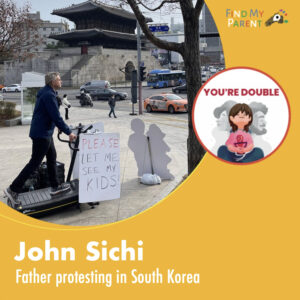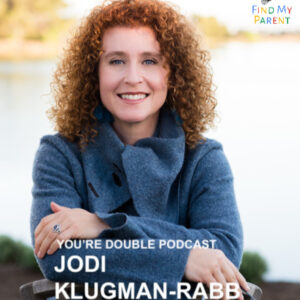In this episode, we are speaking to Dr Jennifer Jill Harman, who is an Associate Professor of Psychology at Colorado State University. Before that, she also served as a family and substance abuse counsellor for serval year. Dr. Harman's areas of research expertise focus on the topic of power in relationships: power in how intimate partners influence each other for good or bad.
As an applied social psychologist, her work has applied social psychological theories on intimate relationships to the study of public health problems ranging from STI prevention to domestic violence. For nearly the last decade, her primary focus has been on the study of parental alienation.
Dr. Harman is an accomplished and awarded teacher, and has published many peer-reviewed articles and book chapters, and has presented her research regularly at scientific conferences around the world. She has also co-authored numerous books such as The Science of Relationships: Answers to your Questions about Dating, Marriage and Family and Parents Acting Badly: How Institutions and Society Promote the Alienation of Children from their Loving Families.
Dr. Harman is a mother of two amazing boys, and a step-mother in a blended family of 7. Topics covered in this episode include: The current state of research when it comes to parental alienation, how to help someone who is going through it, and many other topics.
Dr Harman's Videos:
- Parental Alienation | Jennifer Harman | TEDxCSU
- Parental Alienation – Targeted parents and the effects – Research
- Prof. Jennifer Harman : Parental Alienation as a form of family violence.
Dr Harman's research papers:
- Harman, J. J., & Lorandos, D. (2020). Allegations of family violence in court: How parental alienation affects judicial outcomes. Psychology, Public Policy, & Law. 10.1037/law0000301
- Harman, J. J., Lorandos, D., Biringen, Z., & Grubb, C. (2019). Gender differences in the use of parental alienating behaviors. Journal of Family Violence, 35, 459-469. https://doi.org/10.1007/s10896-019-00097-5
- Harman, J. J., Leder-Elder, S., & Biringen, Z. (2019). Prevalence of adults who are the targets of parental alienating behaviors and their impact: Results from three national polls. Child & Youth Services Review, 106, 1-13. Doi: https://doi.org/10.1016/jy.childyouth.2019.104471
- Harman, J. J., Bernet, W., & Harman, J. (2019). Parental alienation: The blossoming of a field of study. Current Directions in Psychological Science, 1-6. https://doi.org/10.1177/0963721419827271
- Smith, A. D., Biringen, Z., & Harman, J. J. (2018). Parenting time and child coping: The context of parental alienation. Family Science Review, 23, 118-140.
- Harman, J. J., Kruk, E., & Hines, D. (2018). Parental alienating behaviors: An unacknowledged form of family violence. Psychological Bulletin, 144, 1275-1299. http://dx.doi.org/10.1037/bul0000175
- Harman, J. J., Biringen, Z., Ratajck, E. M., Outland, P. L., & Kraus, A. (2016). Parents behaving badly: Gender biases in the perception of parental alienation. Journal of Family Psychology, Advance online publication. http://dx.doi.org/10.1037/fam0000232
- Harman, J. J., Leder-Elder, S. & Biringen, Z. (2016). Prevalence of parental alienation drawn from a representative poll. Children & Youth Services Review, 66, 62-66. doi: 10.1016/j.childyouth.2016.04.021
Dr Harman's Books:
Parents Acting Badly: How Institutions and Societies Promote the Alienation of Children from their Loving Families and Parental Alienation: Science & Law.
Other resources discussed in this podcast:
- Amy Baker and her books (https://www.amyjlbaker.com/)
- Dr Jennifer Harman's Articles: https://www.sciencedaily.com/releases/2019/11/191104144131.htm, https://theconversation.com/parental-alienation-what-it-means-and-why-it-matters-60763, https://www.psychologytoday.com/us/blog/co-parenting-after-divorce/201901/parental-alienation-child-abuse-and-family-violence
- Parental Alienation Study Group: https://pasg.info/ (Fact sheets can be found here too).
I would like to remind everyone that our goal here is to share knowledge with you guys and show that you are not alone in this. With that said, if you need specific legal advice, please get independent advice from a qualified legal practitioner.
If you are a minor, or if you happen to have difficulty in understanding certain parts within this episode, please approach a responsible adult or someone knowledgeable and ask them for clarifications. We have done our best to make sure that it doesn't offend anyone and if you have further questions or comments regarding Find My Parent or the interview, you can mail me at sk@findmyparent.org.
If you are someone who got separated from your own parent, and would like to find your parent again, please go to https://findmyparent.org and fill out your details. With the help of our smart algorithms and matching technology, we hope to help you find your alienated parent again. If you are part of an NGO or even a private company passionate about this topic, please reach out through the contact us page in findmyparent.org and we hope to work together with you. (https://findmyparent.org/contact).



